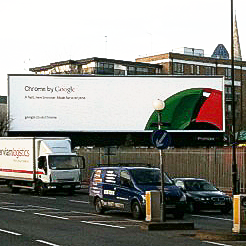
Could you spare 10p for a news report? Maybe 5p for the sports results? Many in the news industry would like us to pay to see news articles that we’ve previously enjoyed for free, whether it’s via websites or hand-held devices.
But one of the problems of this brave, new paid-content world is that the news publishing industry has yet to move on from long-held assumptions about the value of content, inspired by centuries of physical, print distribution.
For example, just look at the sheer size of national newspapers: they are huge products, especially on weekends. Big is better, goes the saying – and mass reach gives you more circulation and advertising revenue.
But in the global, decentralised, just-Google-it content economy, it doesn’t work like that: the publishers that will win through will have the most relevant, findable, highest quality content – not just lots of it.
To illustrate the mismatch between offline and online economics, I’ve gone through Wednesday’s edition of the Times to find out just how much is in it…
- News: there are 42 separate substantial news items in today’s Times, not including some of the smaller NIBs, and at least seven separate analysis pieces;
- Comment: including the three leaders, 13 comment pieces make their way into the main book;
- Sport: 21 news stories and two features;
- Then there’s the diary section: five lengthy and well-written obituaries, crosswords, weather, travel and the Register pages of interesting factoids;
- The Times2 centre pullout has 10 features, some short, some long, as well as four reviews.
So our grand total for today’s Times is more than 100 articles. The quality of writing, pictures and editing is, as you would expect, consistently high.
But if these articles were available via a pay-per-view offer, how much would you pay? If they were priced 10p each, that means to buy everything in today’s paper, you would have to pay £10; at 5p per article, that’s £5 per issue. But my copy of the paper only cost £1.
News International boss Rupert Murdoch will more likely opt for a subscription model for the Times and Sunday Times websites – just as he’s succeeded in selling long-term pay TV packages around the the world.
But to reach a competitive pricepoint, he and other publishers will have to massively realign the value of each piece of news and comment from its current-day, paper value of one or two pence to fractions of pence.
In reality, the real market value of news is what people will pay and the danger is that for an entire generation of readers weaned on the free-to-air internet, that price is nothing at all…
[See also: What’s the average cost of a news article?]
Patrick Smith is a freelance journalist and event organiser, and formerly a correspondent for paidContent:UK and Press Gazette. He blogs at psmithjournalist.com and is @psmith on twitter.

 A treat for Rupert Murdoch at News International HQ today, as he arrives for the annual Xmas bash: a huge billboard opposite the front gate, advertising none other than his sworn enemy, search giant Google. Does the News Corp CEO use Chrome, we wonder?
A treat for Rupert Murdoch at News International HQ today, as he arrives for the annual Xmas bash: a huge billboard opposite the front gate, advertising none other than his sworn enemy, search giant Google. Does the News Corp CEO use Chrome, we wonder?